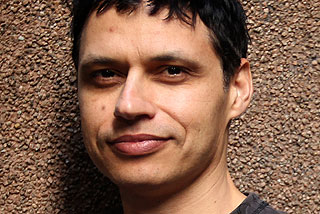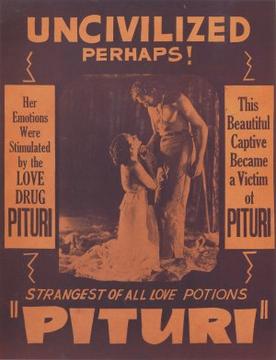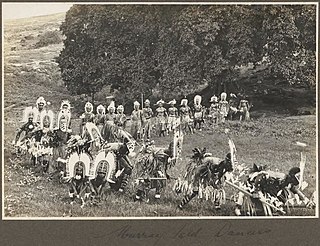Related Research Articles

Edward Koiki Mabo was an Indigenous Australian man from the Torres Strait Islands known for his role in campaigning for Indigenous land rights in Australia, in particular the landmark decision of the High Court of Australia that recognised that indigenous rights to land had continued after the British Crown acquired sovereignty and that the international law doctrine of terra nullius was not applicable to Australian domestic law. High court judges considering the case Mabo v Queensland found in favour of Mabo, which led to the Native Title Act 1993 and established native title in Australia, officially recognising the rights of Aboriginal and Torres Strait Islander people in Australia.

The Aboriginal Tent Embassy is a permanent protest occupation site as a focus for representing the political rights of Aboriginal Australians and Torres Strait Islander people. Established on 26 January 1972, and celebrating its 50th anniversary in 2022, it is the longest continuous protest for Indigenous land rights in the world.

Crocodile Dundee II is a 1988 action comedy film and the second of the Crocodile Dundee film series. It is a sequel to Crocodile Dundee (1986) and was followed by Crocodile Dundee in Los Angeles (2001). Actors Paul Hogan and Linda Kozlowski reprise their roles as Mick Dundee and Sue Charlton, respectively, here shown opposing a Colombian drug cartel.

Deborah Jane Mailman is an Australian television and film actress, and singer. Mailman is known for her characters: Kelly Lewis on the Australian drama series The Secret Life of Us, Cherie Butterfield in the Australian comedy-drama series Offspring, Lorraine in the Australian drama series Redfern Now and Aunt Linda in the Australian dystopian science fiction series Cleverman. Mailman portrayed the lead role of MP Alexandra "Alex" Irving on the Australian political drama series Total Control.

Dennis O'Rourke was an Australian cinematographer and documentary filmmaker.

Wrong Side of the Road is a 1981 low-budget feature film made in South Australia. It is distinctive for being one of the first attempts to bring modern Australian Aboriginal music to a non-Indigenous audience, featuring all-Aboriginal rock reggae bands No Fixed Address and Us Mob.

Larissa Yasmin Behrendt is an Australian legal academic, writer, filmmaker and Indigenous rights advocate. As of 2022 she is a professor of law and director of research and academic programs at the Jumbunna Institute for Indigenous Education and Research at the University of Technology Sydney, and holds the inaugural Chair in Indigenous Research at UTS.

Ivan Sen is an Indigenous Australian filmmaker. He is a director, screenwriter and cinematographer, as well as an editor, composer and sound designer. He is co-founder and director of Bunya Productions.

Marcia Lynne Langton is an Aboriginal Australian writer and academic. As of 2022 she is the Redmond Barry Distinguished Professor at the Melbourne School of Population and Global Health, University of Melbourne. Langton is known for her activism in the Indigenous rights arena.
Kevin Daniel Carmody, better known by his stage name Kev Carmody, is an Aboriginal Australian singer-songwriter and musician, a Murri man from northern Queensland. He is best known for the song "From Little Things Big Things Grow", which was recorded with co-writer Paul Kelly for their 1993 single. It was covered by the Get Up Mob in 2008 and peaked at number four on the Australian Recording Industry Association (ARIA) singles charts.

Samuel William Watson, also known as Sammy Watson Jnr, was an Aboriginal Australian activist from the 1970s, who in later life stood as a Socialist Alliance candidate. He is known for being a co-founder of the Australian Black Panther Party in 1971/2. Through work at the Brisbane Aboriginal Legal Service in the early 1990s, Watson was involved in implementing the findings of the Royal Commission into Aboriginal Deaths in Custody. From 2009 was deputy director at the Aboriginal and Torres Strait Islander Studies Unit at the University of Queensland.

Babakiueria (also known under the video-title Babakiueria (Barbeque Area)) is a 1986 Australian satirical film on relations between Aboriginal Australians and European Australians.

Douglas Grant was an Aboriginal Australian soldier, draughtsman, public servant, journalist, public speaker, and factory worker. During World War I, he was captured by the German army and held as a prisoner of war at Wittenberg, and later at Wünsdorf, Zossen, near Berlin.

Uncivilised is a 1936 Australian film directed by Charles Chauvel. It was an attempt by Chauvel to make a more obviously commercial film, and was clearly influenced by Tarzan.

Mick Miller was a notable Aboriginal Australian activist, politician, and statesman who campaigned for most of his life seeking greater social justice, land rights, and improved life opportunities for Aboriginal Australians in North Queensland and the rest of Australia.

Our Generation is a 2010 Australian documentary film about the struggle of Aboriginal Australians in the Northern Territory to retain their land, culture and freedom.

Charlie's Country is a 2013 Australian drama film directed by Rolf de Heer. It was selected to compete in the Un Certain Regard section at the 2014 Cannes Film Festival where David Gulpilil won the award for Best Actor. It was also screened in the Contemporary World Cinema section at the 2014 Toronto International Film Festival and awarded the Best Fiction Prize and the Youth Jury Prize at the 2015 International Film Festival and Forum on Human Rights (FIFDH) in Geneva.
Isabel Ann Flick was an Australian Aboriginal rights activist, social worker and teacher. She was recognised as a leader not only of the Aboriginal community of Australia, but as a spokesperson for environmental issues in her hometown of Collarenebri, in northwestern New South Wales.

Mabo: Life of an Island Man is a 1997 Australian documentary film on the life of Indigenous Australian land rights campaigner Eddie Koiki Mabo, directed by Trevor Graham.
Barbara McGrady is an Aboriginal Australian photographer and photojournalist based in Sydney, New South Wales. She is the first Indigenous Australian photojournalist.
References
- ↑ ""Yap… + Couldn't Be Fairer"". National Film and Sound Archive. Archived from the original on 28 December 2014. Retrieved 28 December 2014.
- 1 2 ""Documentaries from Down Under: Dennis O'rourke Retrospective"". University of California. Archived from the original on 28 December 2014. Retrieved 28 December 2014.
- 1 2 """COULDN'T BE FAIRER""". CameraWork. Retrieved 28 December 2014.
- ↑ "Obituary – Mick Miller – Champion of the Oppressed". www.faira.org.au. 1998. Archived from the original on 29 February 2012.
- ↑ ""Confronting Racism on Film – Dennis O'Rourke's 'Couldn't Be Fairer' (1985)"". Tribune. 11 December 1985. Retrieved 28 December 2014.